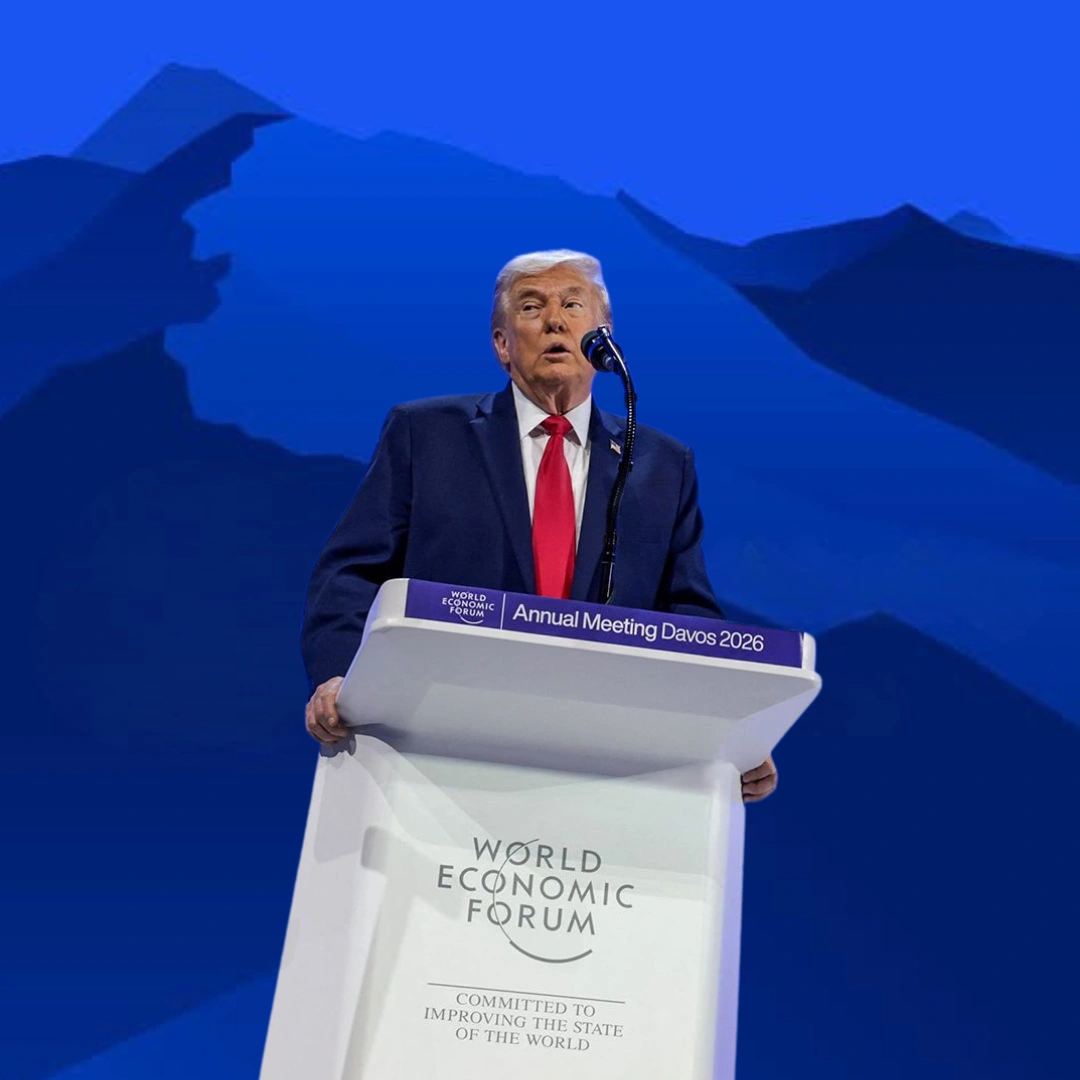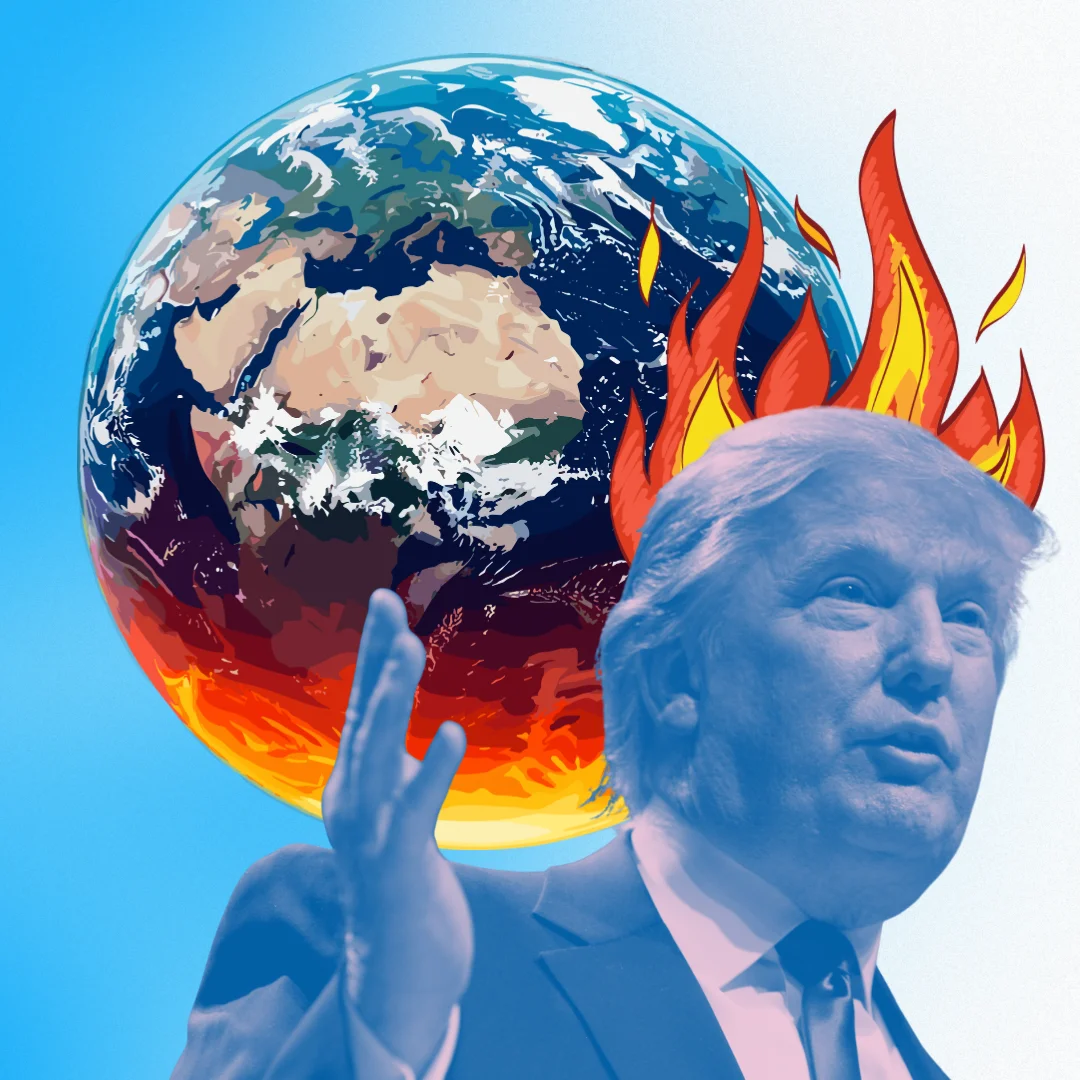As the War on Gaza relentlessly pounds on, the world was confronted with chilling visuals of plain-clothed ICE agents arresting Mahmoud Kahlil in the lobby of his Manhattan apartment building as his wife frantically tries to wrap her head around the fact that her husband, to borrow from early 2000s era legalese, is being “extraordinarily renditioned”. For many of us, this is an eerily familiar picture, America’s equivalent of a kaali Vigo showing up at your doorstep, something the country has increasingly seen more and more of. The reason for the abduction is not as familiar. The First Amendment is the purported soul of American democracy, ensuring that free speech, press, religion, and assembly remain protected, allowing citizens to speak truth to power, express vociferous dissent, and shape the nation’s future without fear of government repression. Why then was a permanent American resident shipped off to a detention facility in Louisiana and dozens of others student protesters doxxed, threatened and expelled? A large part of the answer lies in the role of campaign finance in American elections.
Pakistanis often find it absolutely incredulous that America continues to steadfastly support and bankroll Israel despite vigourous public opposition and mounting evidence that it is engaged in a genocide. This incredulity often leads down a path of looking for quick and easy answers, outlandish conspiracy theories, and even anti-semitic rabbit holes. However, understanding how the campaign finance system in US politics was aggressively harnessed to exploit existing cultural and geopolitical goodwill towards the state of Israel is in fact crucial to understanding why US politicians continue to meekly acquiesce to Tel Aviv again and again.
How and Why Money Runs US Politics
The influence of money in American politics has deep roots going back to the country’s founding. The amount of cash a campaign has at hand is often a decisive factor in its success. However, until the turn of the 20th century, political financing was decentralised. With sparse formal regulations, wealthy individuals and industries essentially enjoyed a free-for-all, exerting influence through patronage, donations and media control. It will come as no surprise that during the Gilded Age, major industrialists like J.P. Morgan and John D. Rockefeller openly bankrolled candidates in exchange for favourable policies for their respective business interests, often through direct cash payments, lucrative business deals, or outright bribes to secure their interests in government.
Funnily enough, the early 1900s even give us precedent for a billionaire running his own cabinet department. Long before Twitter tantrums by business moguls were a thing, Pennsylvanian steel and banking tycoon Andrew Mellon notoriously translated his immense personal wealth into his appointment as Treasury Secretary under three (!) successive presidents. He was already very well off prior to ascending to the position, with his generosity having helped him cultivate a lot of influence with his Republican colleagues.
One of Mellon’s biggest self-serving moves was the Revenue Act of 1926 , which slashed the top income tax rate from 73% to 25%, disproportionately benefiting the ultra-wealthy—including Mellon himself of course. At the time, he was not just the architect of U.S. tax policy; he was also one of the country’s biggest taxpayers. The tax cuts allowed him to retain millions of dollars he would have otherwise owed to the government. He also shaped tariffs that benefited his business empire and created tax loopholes that allowed wealthy individuals, himself included, to dodge payments by donating art. The National Gallery of Art, while exceedingly appealing, was essentially a tax write-off ploy for Mellon. His policies enriched the elite and seriously worsened the Great Depression for very many Americans. Forced out in 1932, Mellon had already secured his fortune, proving that the wealthiest could rewrite the rules in their favor at any time in American politics. Almost a hundred years later, his grandson, Timothy Mellon, spent the most amount of money on the 2024 election after Elon Musk. The more things change?
Foundations of Modern Campaign Finance
Fast forward a hundred years from Mellon’s era of backroom deals and personal patronage, modern campaign finance has become a vast, institutionalised behemoth that ensures elected officials are more accountable to their wealthiest donors than to their constituents. Along the way, President Nixon’s indiscretions led to a tightening of regulations and the FEC came into being, but soon after, in 1976, the Supreme Court ruled that “money equals speech” and despite the best efforts of Senators McCain and Feingold with the 2002 Bipartisan Campaign Finance Reform Act , the Supreme Court threw the floodgates open as it were with its 2010 decision in Citizens United v. FEC (2010).
It is difficult to overstate just how seismic the impact of the Citizens United decision was on campaign funding. Justice Kennedy and others contended that large corporations and unions had the same inalienable First Amendment rights as regular people. Consequently, with money being equal to speech, any restrictions on campaign donations were characterised as violations of free speech. With zero limits on independent expenditures, unions and large corporations started pouring obscene amounts of money to skew electoral playing fields to their whims. This unchecked spending was usually funnelled through an ingenious political device called a Super PAC (Political Action Committee). A PAC can legally raise and spend unlimited amounts of cash to influence elections, with a nonsense toothless caveat preventing the PAC from directly coordinating with the candidate. This is a meaningless distinction, with PACs effectively serving as the finance arm of any campaign, allowing corporate interests to flood campaigns with unignorable quantities of cash all while maintaining a mere veneer of separation. With the gloves now off, Wall Street, fossil fuel companies, defense contractors, big oil and pharma etc. all came to the party with their cheque books in hand.
With the advent of PACs came along a heavy hitter with a kitty to boot: AIPAC (the America Israel Public Affairs Committee) and its sister organisations.
PACking A Punch: AIPAC’s M.O.
There was a time when Washington did not hesitate to pressure Israel in pursuit of a just resolution. Eisenhower threatened sanctions to force a withdrawal from Sinai, Carter secured the Camp David Accords and later wrote a book on the issue, and Clinton pushed Arafat and Barak toward a deal. Today, such leadership is unthinkable. The Israel lobby’s grip on American politics, and indeed that of money in general, has gradually become so absolute that even mere lip service toward Palestinian rights is treated as heresy, and the very idea of an even-handed approach has been banished from Washington.
Repurposed and renamed from its early days as the American Zionist Council, AIPAC is the nerve center of the Israel lobby, the brutal enforcer that ensures unwavering allegiance in Washington—not just with money, but with fear, influence, intimidation and smear campaigns, reinforced with the unspoken understanding that any politician who dares to cross it will not go unpunished. In their excellent book entitled The Israel Lobby and US Foreign Policy, John Mearsheimer and Stephen Walt dissect the modus operandi of the AIPAC and others that has helped them cultivate a legion of unwavering, unconditional support in Congress where no one dares step out of line.
AIPAC and other pro-Israel PACs operate with a simple and highly effective strategy: reward loyalty, punish dissent, and preemptively deter challenges. They don’t just funnel millions into campaigns across the country ; they shape the very political landscape by ensuring that no serious candidate dares to question U.S. support for Israel without facing severe consequences. Former Congresspersons Jamaal Bowman and Cori Bush are two recent examples of voices critical of Israel that AIPAC and affiliated super PACs absolutely electorally obliterated in 2024. Rep. Bush’s race saw a whopping $9 million spent to oust her (in the second most expensive House primary ever), with a similarly obscene figure spent in Bowman’s district to have pro-Israel George Latimer ascend to Congress . And the lobby is fairly bipartisan in this approach. Uber conservative Kentucky Congressman Thomas Massie made waves when he revealed in an interview with Tucker Carlson that every member of Congress has an ‘AIPAC babysitter’ that maintains constant contact . Efforts to deseat him with an absurdly expensive primary in a solidly red district are currently underway. Former Republican Rep. John Hostettler of Indiana is another victim of this policy, deemed insufficiently supportive of Israel and even characterised as an antisemite. After 12 years in Congress, he lost, with his opponent leading with 40% of the vote.
It is almost surreal that a single lobby can orchestrate the downfall of sitting members of Congress with such surgical precision, pouring millions into targeted smear campaigns and handpicking their replacement without any consequences or serious pushback. These defeats are not organic; they do not reflect the genuine will and mandate of a public servant’s constituents. That is an alarming indictment of the state of American democracy. It makes clear to anyone on the Hill that defying its agenda is a career-ending mistake.
The cultivation of influence often starts long before an election. Politicians, often newcomers with very frequent and very expensive elections, are invited to AIPAC-sponsored trips to Israel, where they receive a carefully curated narrative about the U.S.-Israel relationship. These trips serve as both indoctrination and a test: those who signal unwavering support are later rewarded with campaign donations and political backing.
For incumbents, the message is equally clear. AIPAC maintains detailed records of lawmakers' voting histories and public statements, ensuring that every member of Congress knows their stance is being monitored. For example, a vote Rep. Hostettler made 24 years ago was one of the big reasons behind his orchestrated defeat. This carrot and stick policy results in a Congress where bipartisan support for Israel remains virtually untouchable, not because of overwhelming public demand, but because the cost of dissent is simply too high - literally.
Let us consider what this means for freedom of thought and expression. Should any public office holder at any level find a reason to oppose American foreign policy towards Israel, it is virtually impossible for them to act on their better judgment. They just cannot afford to.
The Self-Licking Ice Cream
But US aid to Israel is also very good for business. Nearly all of the billions sent to Israel annually must be spent in America on American-made weapons and military hardware, in a system that critics have described as a self-licking ice cream: it ensures that defense contractors like Lockheed Martin, Raytheon, and Boeing profit immensely from every aid package. For example, the 2023 U.S. military aid package to Israel included substantial funding for the Iron Dome missile defense syste, which was to be a joint venture between Israel’s Rafael Advanced Defense Systems and U.S. firms like Raytheon which operate in key Congressional districts. This is why it’s not just AIPAC that enforces unwavering support for Israel, but also the PACs of weapons manufacturers, which lobby aggressively to keep the money flowing. Even when Israel’s actions violate U.S. laws like the Leahy Law, which bars military aid to foreign forces committing human rights abuses, Congress looks the other way because opposing these deals means going up against the entire military-industrial complex, which would be an even tougher, messier fight.
The Israel-US Relationship: Values, Culture, Geopolitics
We would be remiss to ascribe the support for and influence of Israel-aligned groups in the US to just campaign funding. Funnily enough, President Truman was in the middle of his reelection campaign when he jumped to recognise the newly formed State of Israel within 11 minutes of its inception. Ever since then, both countries have enjoyed an all-weather friendship, with America having doled out $158 billion to the “only democracy in the Middle East” over the years . One can broadly identify three reasons for the time-tested support: shared values, strategic interests, and genuinely broad based support.
Independent of lobbying efforts, there is a deep-rooted religious and historical connection that shapes American attitudes. Among evangelical Christians, who form a powerful voting bloc, Israel holds profound biblical significance with many believing in a prophecy that requires the protection of Israel. This has led to widespread grassroots support for Israel among conservative religious communities, which groups such as AIPAC can and do use to their advantage.
Much of America’s attitudes towards the geographical region are enmeshed with the historic memory of the Second World War, and the feel-good American heroism that accompanied that victory. It is a nationalist impulse, in which the Holocaust has a huge role to play. For years, everyday Americans would encounter fellow citizens that had been impacted by the horrors of the Holocaust. This cultural sentiment made Israel a sympathy-inducing project for a long time, which has allowed America to enable Israel’s military operations to the detriment of everyone involved in the current conflict.
Moreover, since the Cold War, Israel has been a key U.S. ally in the Middle East, providing intelligence, counterterrorism expertise, and a forward base for American influence in the region. The U.S. sees Israel as a stable and technologically advanced partner in an otherwise volatile part of the world, crucial for maintaining regional security and countering adversaries like Iran. Politicians on both sides refer excessively to the two countries’ “shared values”, thus framing Israel as the only democratic ally in a region that is rife with impenetrable conflict and autocratic regimes. The country with is Western-style economy, mass cultural integration and exchange with the Wes, and technological advancement might seem a beacon of prosperity in an otherwise troubled area establishing healthy cultural familiarity. This ideological alignment is further cemented by dee- seated diaspora ties. The American Jewish community has played a significant role in US society with massive contributions to science, academia, media, politics and business, to name a few.
Indeed all of these factors exist independent of any financial or political pressures.
<<>>
During the course of writing of this piece, several other foreign graduate students were similarly extraordinarily renditioned. Badar Khan Suri, an Indian postdoctoral fellow at Georgetown University was arrested on identical charges to Kahlil and shipped off to Louisiana. Bizarrely, the action against him stems from his wife’s stance on the war on Gaza. She happens to be an American citizen. A Turkish doctoral student Rumeysa Ozturk was accosted by a gang of plain- clothed ICE agents near the Tufts University campus in a harrowing sequence of events that was captured on surveillance footage. She had called for Tufts to divest from companies with ties to Israel in an article in the student newspaper. Hundreds of international students’ visas have been revoked for “views contrary to American foreign policy” upending their lives and, putting their academic and professional future in jeopardy.
It’s safe to say that the machinery of political influence extends far beyond campaign contributions and electoral manipulation. When the mechanisms of power feel threatened, when dissent challenges the carefully constructed narrative of unconditional support, the response reveals the true depth of systemic control. The same political apparatus that ensures unwavering support for Israel through financial leverage now demonstrates its capacity to silence opposition through more direct means: the suppression of free speech and the targeting of those who dare to speak out.
This cannot be America’s new normal. Extrajudicial abductions of the sort are rare in authoritarian regimes, let alone the purported global champion of democracy. It is deeply ironic that it is this very freedom of speech that Justice Kennedy came out in such spirited defense of all the way back in his 1976 decision that is now being torn from limb to limb by American state machinery. It is a pity that the speech of money has overtaken the speech of “we, the people.”





